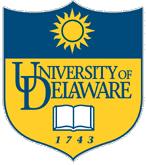

Undergraduate
Biological Sciences Education Program
at the University of Delaware
Faculty Teaching Fellows
|
|
Undergraduate
Biological Sciences Education Program
Faculty Teaching Fellows |
The four-year, $1.6M
grant from the Howard Hughes Medical
Institute to the University of Delaware for undergraduate biological
sciences education focuses on and is entitled "Stimulating
Attitudes of Inquiry." This theme comes from a quotation from
James
Bryant Conant, distinguished chemist, educational scholar, college
administrator, government advisor, statesman, and author.
"When does a scientist become a scientist? It is not when a person knows many facts and even understands in depth some aspect of the natural world. I would suggest the transition occurs when curiosity about a phenomenon leads to an inquiry for new knowledge. This can occur in a person with little or lots of knowledge about a subject. It is an attitude of inquiry."
Each year, up to five HHMI Faculty Teaching Fellows in the biomedical sciences (broadly defined) can participate in the one-week summer institute conducted by the University of Delaware's Institute for Transforming Undergraduate Education. ITUE emphasizes active-learning strategies and pedagogically sound uses of instructional technology. This year ITUE is sponsoring PBL2002, A Pathway to Better Learning, an international conference in Baltimore from June 16 to 20. HHMI 2002 Faculty Fellows will attend PBL2002 and have their expenses paid by HHMI (~$1000). Fellows may also request up to $500 for educational software and hardware, travel to educational conferences, and student assistance related to their instructional activities, and may be eligible for matching funds from their department or college. Faculty in the biomedically-related sciences, who wish to become HHMI Faculty Fellows and attend the PBL 2002 conference, should send a formal request to Hal White and provide a brief description of how the meeting and funding will help transform an undergraduate science course they teach. The deadline is April 12, 2002.
Who is eligible? All faculty in the Department of Biological Sciences and the Department of Chemistry and Biochemistry are eligible. In addition, faculty in the Departments of Physics, Mathematics, Medical Technology, Physical Therapy, Animal Science, Plant and Soil Science, and Entomology are eligible if their proposals relate to service courses required by or serving majors in the biomedical sciences, e.g. MATH-221/242, PHYS-201, and the like. Faculty interested in transforming related laboratory courses are strongly encouraged to apply.
HHMI Faculty Teaching Fellows
will be encouraged to promote and participate in inter- and intra-institutional
dissemination of innovative teaching and learning strategies. For example,
HHMI will fund science education scholars from other institutions to present
their work in regularly scheduled departmental seminar series. The first
of these seminars was presented in Biological Sciences by Dr.
Malcolm Campbell from Davidson College on March 5, 1999 and a Science
Education Seminar Series, The Role of the Research University in Science
Education, K-16, took place in the Spring 2000. In 2001, there were three
distinguished speakers in Biology, Chemistry, and Physics in the HHMI
Series.